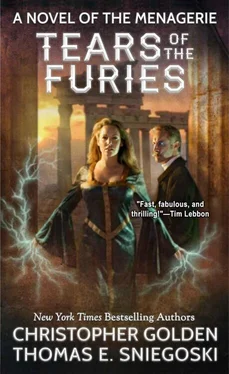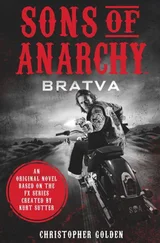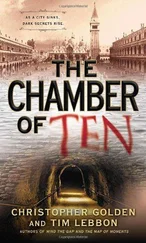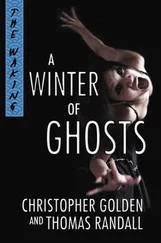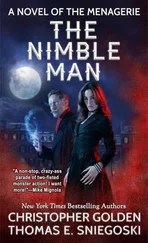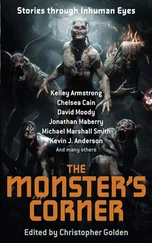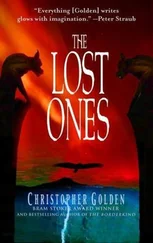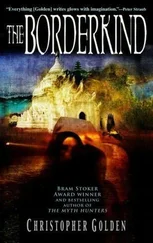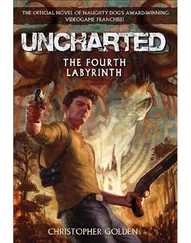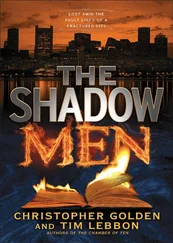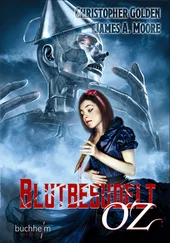Christopher Golden - Tears of the Furies
Здесь есть возможность читать онлайн «Christopher Golden - Tears of the Furies» весь текст электронной книги совершенно бесплатно (целиком полную версию без сокращений). В некоторых случаях можно слушать аудио, скачать через торрент в формате fb2 и присутствует краткое содержание. Жанр: sf_fantasy_city, на английском языке. Описание произведения, (предисловие) а так же отзывы посетителей доступны на портале библиотеки ЛибКат.
- Название:Tears of the Furies
- Автор:
- Жанр:
- Год:неизвестен
- ISBN:нет данных
- Рейтинг книги:4 / 5. Голосов: 1
-
Избранное:Добавить в избранное
- Отзывы:
-
Ваша оценка:
- 80
- 1
- 2
- 3
- 4
- 5
Tears of the Furies: краткое содержание, описание и аннотация
Предлагаем к чтению аннотацию, описание, краткое содержание или предисловие (зависит от того, что написал сам автор книги «Tears of the Furies»). Если вы не нашли необходимую информацию о книге — напишите в комментариях, мы постараемся отыскать её.
Tears of the Furies — читать онлайн бесплатно полную книгу (весь текст) целиком
Ниже представлен текст книги, разбитый по страницам. Система сохранения места последней прочитанной страницы, позволяет с удобством читать онлайн бесплатно книгу «Tears of the Furies», без необходимости каждый раз заново искать на чём Вы остановились. Поставьте закладку, и сможете в любой момент перейти на страницу, на которой закончили чтение.
Интервал:
Закладка:
He bared rows of tiny shark teeth in a satisfied smile as he held the weapon up, examining it in the illumination cast from the flames of his forge. The shadows did their best to swallow all light in this place, but the furnace of his forge was enchanted, and would have burned at the bottom of the ocean. The weapon was double-bladed… little more than a double blade, really. He had combined the concept of the ancient punching blade, katar, with the more Medieval double-headed battle-axe. The warrior grasped a handle in the middle of the two razor-sharp, rounded blades and thus could swing a cutting edge in any direction. The blades themselves were an iron-and-silver alloy that would have been impossible, save that his employer was an accomplished alchemist.
Iron was poison and pain to witches and the Fey. Silver was death to many of the creatures of the night. A good weapon. Squire was proud of it.
In the light of the forge’s blaze he could see his reflection in the blade. His tiny eyes flickered in the firelight. There was a blemish in the metal, and the leathery brown flesh of his forehead wrinkled in consternation. He reached out a yellowed, cracked nail to scrape at it, to investigate, and then he chuckled softly with a rattle in his throat from too many cigars. It was merely a cut on his face, reflected in the pure mirror of the blade.
Squire drew his thumb along the edge, barely touching, but it cut him like a whisper, drawing a thin line of blood from his flesh.
He nodded to himself in satisfaction. A job well done. Now he only needed to fashion the leather sheath such a weapon would require. It was not complete without it, for the dual blade was too dangerous to carry unsheathed.
But the leather would wait.
Squire set the weapon on the wooden worktable where he kept most of his tools, and stretched. He had been crouched over the forge, and then the anvil, and at last the grindstone. His back hurt like a son of a bitch, but it was worth it just looking at the beauty he had made. He sucked his injured thumb, but there was pleasure in it. To him it was only right that the first blood the weapon should draw would be his own.
"What am I going to call you?" he said aloud, brows knitting as he studied the weapon. The perfect symmetry of the twin blades impressed him. It was a nasty piece of work.
Twins, he thought.
"Gemini." That was the perfect name. It was a Gemini blade.
The hobgoblin patted the pockets of his coat and felt the reassuring bulk of his cigar case. He fished it out, spilling old candy bar wrappers into the shadows, then removed a cigar and set the case on the table. With great pleasure he bit the end off of the cigar and clenched it in his teeth, then went to the forge and leaned in, plunging the tip into the blazing furnace. The heat from the fire baked the skin of his face, but he was used to that. Hobgoblins had no particular fear of flames. Of burning to death, yeah. They weren’t stupid. But not of fire. A little scorching wasn’t going to do much damage to one of his kind.
With a sigh of pleasure he puffed on the cigar and glanced around at the shadow chamber. There were no walls, really, and yet the workshop did exist in a sort of void within the world of darkness. Black mist churned and pulsed all around, but there were openings in that breathing shadow, pathways that would take him anywhere he needed to go. Once upon a time, Squire had been like other hobgoblins… daunted by the constant feeling that the shadows were aware of him, that the darkness sensed his every move and thought. It still unnerved him at times, but he had come to know this place, and there was no danger in it. Not for hobgoblins. Not unless other things roamed the shadows.
When that happened, he closed his workshop up and fled back to the world of light.
But at times like this, with a job well done and a fresh cigar in his hand, Squire could relax. He took several more puffs on his cigar and blew a cloud of noxious smoke into the shadows.
At peace.
A soft, electronic melody broke the silence of the shadows. The tune was The Beatles’ "Penny Lane." It was Squire’s ringtone.
He reached into another pocket in his coat — it had more pockets than was possible — and answered. "Squire."
He listened to the voice on the other end, cursing a couple of times. "Yeah. Yeah, of course. No, that can’t be good. You just sit tight there, spanky. Someone’ll be in touch."
Mr. Doyle strode along Hanover Street in Boston’s North End, enjoying the warm summer day. Once upon a time the neighborhood had been subject to a constant drone of noise from the elevated interstate that ran through Boston’s heart. But the city had done something extraordinary, burying the highway underground. It was quiet, now, in the North End. Or as quiet as the neighborhood would ever be.
The North End was a warren of curving streets, lined with churches, apartments, bakeries, and restaurants. Early in Boston’s history it had become the haven of the city’s Italian immigrants, and it still reflected the best of that cultural influx. The spring and summer seemed a parade of festivals honoring the Italians’ favorite saints, carnivals of food and music. This was a corner of the city — of the nation — that still enjoyed simple pleasures.
The summer breeze swept off the ocean and blew through the narrow streets, picking up the wonderful aromas from the markets and the pastry shops. Mr. Doyle could not help himself, and he paused to peruse the small menus posted in front of several restaurants as he made his way along the street. Frank Sinatra’s voice whispered through one propped-open door, Andrea Bocelli through another.
The sidewalks were busy with people out strolling, deciding on lunch, or making their way to the Old North Church to appreciate the history of the place. Like so many of Boston’s treasures, the church was tucked away far from anything else, beyond even the limits of the touristy areas of the North End. Parts of that neighborhood did not share the appeal of its main streets. Beyond Prince and Hanover, there were other smaller, narrower roads where there were no expensive signs, no festival banners, no outdoor music. The shops on those backstreets catered only to local people. The faces of the buildings were in desperate need of sandblasting and refurbishing, and the windows were often cluttered with handmade signs.
Mr. Doyle left the brighter, more colorful heart of the North End and slipped into a gray side street with the sureness of one who had walked this way many times. He passed a shoe repair shop, a small butcher’s, a used appliance store, and an antiquarian bookstore that looked tiny from a peek through the front window, but was unimaginably enormous within. Impossibly large, some might have said.
Ah, well. People had so little imagination. And other than the locals — who had a strong enough sense of community never to remark on anything odd — the only people who went into the bookstore knew what they were looking for, and that only a special kind of shop would be able to acquire it for them.
He inhaled deeply. The salt of the ocean was strong on the breeze. It had been a beautiful walk down here from Beacon Hill. It was June, the solstice imminent. The days were long, and the air shimmered with the heat of the sun. During the workweek there were mostly professionals about, but this was Saturday, and so he had passed many women in pretty summer dresses. It was the sort of day that inspired that kind of thing. On his walk back, he thought he might stop and buy a lemonade from one of the street vendors in front of the aquarium.
Mr. Doyle waved to a Sicilian grandmother pushing her daughter’s child in an old-fashioned carriage. She nodded gravely in return. A silver Lexus prowled along the curving street. Someone looking for parking had lost their way. There were things he simply knew, things he intuited from the moment. It was a gift.
Читать дальшеИнтервал:
Закладка:
Похожие книги на «Tears of the Furies»
Представляем Вашему вниманию похожие книги на «Tears of the Furies» списком для выбора. Мы отобрали схожую по названию и смыслу литературу в надежде предоставить читателям больше вариантов отыскать новые, интересные, ещё непрочитанные произведения.
Обсуждение, отзывы о книге «Tears of the Furies» и просто собственные мнения читателей. Оставьте ваши комментарии, напишите, что Вы думаете о произведении, его смысле или главных героях. Укажите что конкретно понравилось, а что нет, и почему Вы так считаете.
